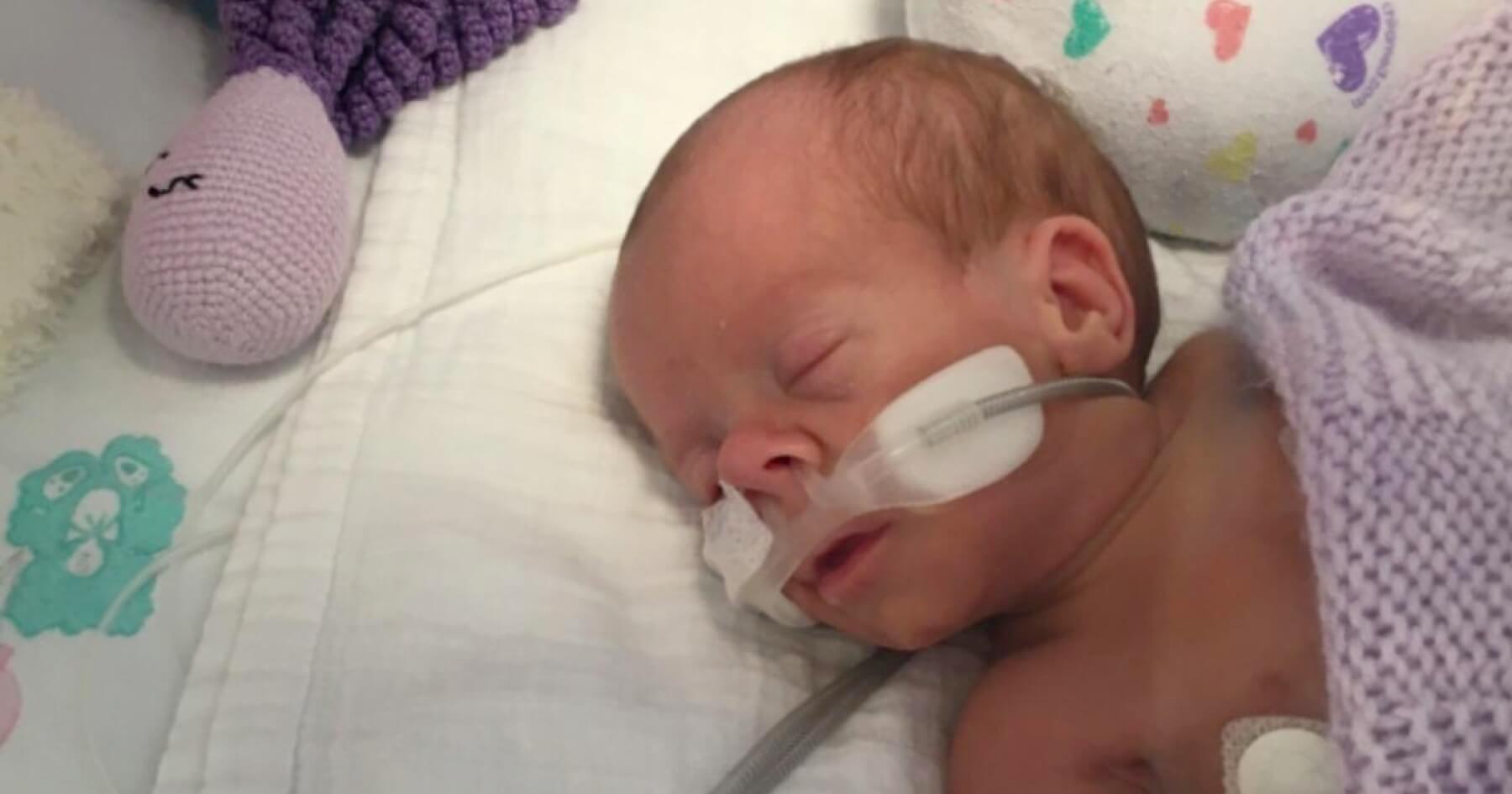Parents of a premature baby have praised a new app that has allowed them to stay connected to their newborn daughter, Barbara, despite the lockdown.
Barbara was born at 27 weeks’ gestation – just three weeks after the abortion limit – in Kent in September last year and was transferred twice to Evelina London Children’s Hospital for her care.
Due to the COVID lockdowns, parents Jenny Clarke and John Britton have had to make use of a video messaging app called vCreate in order to receive updates on their daughter’s progress.
“As we don’t live close to the hospital, we rely on public transport to visit Barbara, which has been especially difficult over the past few months”, Jenny said.
“The app has been a brilliant way for us to see Barbara and check in on her progress”.
“She also has seven siblings so they’ve loved being able to see photos of her as she grows, as they’ve not been able to see her in person yet”.
A new feature of the app allowed Jenny’s eldest daughter Freya, 9, to record herself reading a bedtime story, which staff have played for her sister in the hospital.
The staff at the hospital are able to send regular photo updates and messages about Barbara to keep her family up to date on her progress and reduce their anxiety of not being permitted to visit their own daughter and sibling.
Elaine Wood, neonatal sister at Evelina London, said they try to provide accommodation for parents who do not live close by but “we know it can be challenging for parents to stay with their babies all the time and this can cause a lot of anxiety and stress”.
“When a baby is admitted to our unit, we sign the family up to vCreate. The app has been vital in helping families feel closely connected to their loved ones during these difficult times”.
Survival rates for babies born before the abortion limit increasing
Babies are continuing to be born before or shortly after the abortion limit in Great Britain of 24 weeks’ gestation and going on to live and even thrive at greater rates than before. Studies suggest that the majority of premature babies grow up to be healthy adults without any major health problems.
A study, published in the Journal of the American Medical Association in October 2019, followed 2.56 million babies born in Sweden between 1973 and 1997, around six percent of whom were born prematurely.
Researchers compared the health data of the premature babies to those that had been born at full term. They found that 55% of premature babies had no serious chronic, physical, or mental health issues by early adulthood. This is compared to 63% for babies born at full term.
Additionally, with each passing decade, the odds of survival for a premature baby to adulthood have improved from about 91% of babies born in the 1970s to about 96% of those born in the 1990s.
However, the study also found that the earlier babies are born, the harder it becomes to avoid complications.
Just 22% of extremely premature babies – those born between 22 to 27 weeks’ gestation – were alive without any health problems by the end of the study.
The survival rate for extremely premature babies has doubled over the past decade, prompting new guidance allowing doctors to try to save babies born as early as 22 weeks into a pregnancy.
Right To Life UK spokesperson, Catherine Robinson, said: “As medical care continues to advance and the chance of survival for severely premature babies increases, the cruelty and irrationality of our abortion legislation comes under an increasingly unflattering light”.
“This is something that Parliament should urgently revisit. It has been over a decade since time limits were last debated fully in Parliament, in 2008”.
“There is a real contradiction in British law. In one room of a hospital, doctors could be working to save a baby born alive before 24 weeks whilst in another room a doctor could perform an abortion which would end the life of a baby at the same age. Surely this contradiction needs to end?”
“Independent polling from ComRes shows that 70% of women in the UK want to see the time limit for abortion reduced to 20 weeks or below. Our current abortion time limit is way out of line with the rest of Europe where the most common abortion time limit is 12 weeks”.












